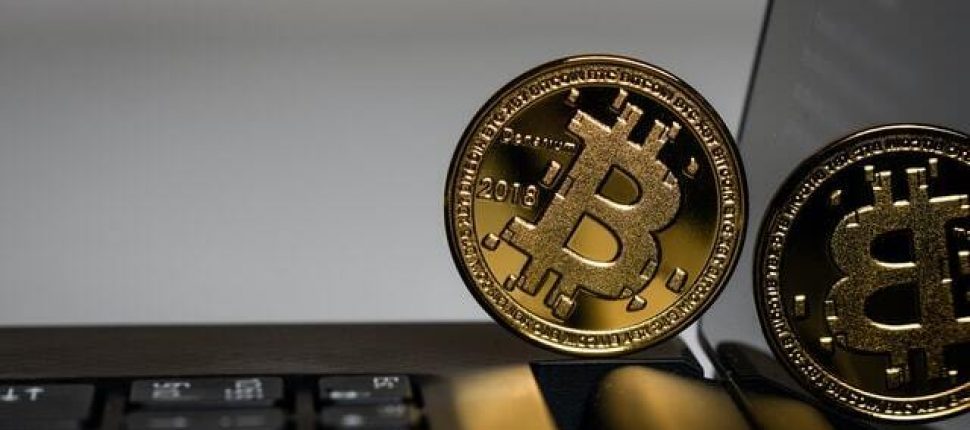- >Best Crypto Friendly Banks
- >Buying Bitcoin on Robinhood
Buying Bitcoin on Robinhood: Crypto Investing in 2025
Robinhood Overview
- A great one-stop shop for anyone looking to invest in cryptocurrency or stocks
- Easy onboarding procedure requires very little from user
- Fully regulated financial institution in the United States
- Support for BTC, ETH, LTC, BCH, DOGE, ETC, and BSV
Robinhood Pros & Cons
Pros
Sleek, user-friendly interface on mobile and desktop
Commission-free cryptocurrency trading
Get a debit card attached to your account
Traditional traditional stocks in addition to crypto assets
Cons
Faced a controversy regarding the selling of user data to high-frequency traders
Currently only available in the United States
Not available in 4 U.S. states
Cryptocurrency selection is somewhat limited
Has faced multiple security incidents
What is Robinhood?
Robinhood is headquartered in Menlo Park, California and it allows users of all levels of net worth to invest in stocks and other assets via their mobile app and website. This is an example of a company on the cutting edge of the financial technology revolution, as there are no physical storefronts or bank branches associated with Robinhood. Robinhood is considered one of the best platforms for trading stocks and crypto under one (virtual) roof.
Robinhood is a regulated financial institution in the United States. They are regulated by FINRA as a broker-dealer and are registered with the United States Securities and Exchange Commission. Since there are no fees on the platform, Robinhood makes most of their money from earning interest on their users’ cash balances, selling data about their users’ activity, and margin lending. As of 2022, the company has over 1,250 employees.
How Does Robinhood’s Crypto Feature Work?
Robinhood treats bitcoin and other crypto assets just like any other asset on their platform. Users are able to trade bitcoin, Ether, Litecoin, Bitcoin Cash, Dogecoin, Ethereum Classic, and Bitcoin SV via Robinhood. However, it should be noted that crypto trading is completed in an account separate from a normal Robinhood Financial account. This separate account is with Robinhood Crypto.
As a trading platform mainly focused on the traditional financial world, Robinhood has not yet implemented the ability to move cryptocurrencies to and from their platform. In other words, users are not actually purchasing real crypto assets when they use Robinhood, as they have no ability to acquire the underlying assets at this time. Instead, users are obtaining exposure to the price movements of the various cryptocurrencies supported by the platform.
Which Currencies Can You Buy and Sell?
In terms of crypto assets specifically, Robinhood Crypto supports BTC, ETH, LTC, BCH, DOGE, ETC, and BSV. Robinhood does not currently offering trading of traditional fiat currencies.
Country Restrictions
Robinhood Crypto is currently only available in 46 states in the United States; however, residents of the United Kingdom are able to join a waiting list to gain instant access to the platform once it launches across the pond. The states where Robinhood’s services are currently not available are Hawaii, Nevada, New Hampshire, and and West Virginia.
Fees
The biggest selling point of Robinhood has always been the fact that it does not charge any commissions for trades made on its platform. Robinhood has found alternative ways to monetize the trading of a variety of assets, which makes it an attractive option for anyone trading the stocks, cryptocurrencies, and other assets that are available for trade on the platform. That said, this does not mean that there are no fees on the platform at all.
Here are some of the fees to watch out for on Robinhood:
- Debit card ATM fees – The debit cards associated with Robinhood accounts offer free withdrawals from ATMs; however, this only applies to ATMs that are part of the Allpoint or MoneyPass networks. An ATM provider who is not part of one of these two networks may charge a fee for a Robinhood cardholder to make a withdrawal, and Robinhood will not reimburse the user for that fee.
- Foreign transaction fees – Another fee that may occur with a Robinhood debit card is a foreign transaction fee. This is a fee that will likely be charged by a foreign payment processor or ATM provider in a situation where you’re trying to use U.S. dollars overseas for a transaction that is not denominated in U.S. dollars.
- Robinhood Gold – One last fee to consider with a Robinhood account is only for Robinhood Gold users who are interested in margin trading. A Robinhood Gold account comes with a $5 monthly fee, but there are no fees attached to $1,000 worth of margin trading per month. However, the fee rises to 5% after that first $1,000.
Supported Crypto Wallets
There is currently no native crypto wallet support involved with Robinhood’s financial platform. This means that users are unable to withdraw bitcoin to their own wallets after they make a purchase. Additionally, users are unable to deposit bitcoin they already own into Robinhood.
Having said that, the option to deposit or withdrawal various cryptocurrency via their underlying networks may be added in the future. Robinhood has stated their intent to at least offer the ability for users to withdraw crypto assets to native wallets. However, the company is also worried about money being deposited to the platform from illicit sources, which means it could take much longer for them to become comfortable with cryptocurrency-based deposits.
Does Robinhood Offer a Credit Card?
Robinhood does not currently offer a credit card but it does have a debit card that can be used anywhere Mastercard is accepted.
This is actually a useful product for crypto users as they can potentially sell some of their crypto and load it directly onto their Robinhood debit card to make payments.
Of course selling crypto is generally considered a tax event so it’s not something you want to do frequently.
How to Sign Up for Robinhood
The best way to get started with Robinhood is to download the app rather than using their website. This is a mobile-first platform, and you’ll likely have your phone with you more often than your laptop or desktop computer anyway.
Once you’ve downloaded the Robinhood app, you’ll need to open the app and tap the “Sign up” button that is displayed on the screen. You will need to fill out a good amount of personal information during the setup process, as there are a number of regulations that Robinhood must follow in order to remain compliant with U.S. law. After you share your social security number and other information about yourself, you should be able to get your account approved in a matter of minutes.
Once you have an account, you’ll need to connect your bank account to Robinhood in order to get any use out of the platform. This process is extremely simple, as you’re able to choose your bank based on its company logo.
The last step is to fund your Robinhood account with your bank account and start investing.
Best Alternatives to Robinhood
If you’re looking for alternatives to Robinhood you’ll likely want to check out something like SoFi or Wealthsimple.
Both SoFi and Wealthsimple offer exposure to the traditional financial markets in addition to cryptocurrency. Like Robinhood, both SoFi and Wealthsimple don’t give their customers true ownership of their crypto and you can’t withdraw crypto from the site.
On the other hand if you’re looking for more direct crypto ownership (but no stock trading options) than you might want to check out a crypto exchange like Coinbase.
- Receive $10 when you start trading crypto assets
- Only available in the United States
- Completely custodial platform
- Supports BTC, ETH, LTC, BCH & ETC
- All-in-one app that features banking, stocks and cryptocurrency options
- Wealthsimple Crypto is available to Canadians only
- Wealthsimple is very safe and insured by several regulators
- One of the fastest growing online financial institutions in the world
- Earn $200 in free crypto after completing sign-up process. Terms apply.
- Variety of products including exchange, staking, wallet
- Advanced Trading options for experienced traders
Robinhood Frequently Asked Questions
Unfortunately, transferring bitcoin out of Robinhood is not currently possible, but the company plans to add this feature in the future. For now, the best way to turn the bitcoin in your Robinhood account into cash in your wallet is to sell the bitcoin on Robinhood and transfer the resulting dollars into your bank account.
A stop-loss order is a trade that is predefined to execute when a stock or other asset reaches a particular price point. This is often used to sell a stock a certain price in a situation where the trader wants to make sure they can sell and lock in profits before the price drops under a specific threshold.
Robinhood Crypto is available in 46 out of the 50 states in the United States. The states where Robinhood users are currently unable to trade cryptocurrencies are Hawaii, Nevada, New Hampshire, and West Virginia.
In October 2020, it was reported in a number of media outlets that a large number of Robinhood users had their accounts hacked. While this was viewed as a serious issue for Robinhood in some circles, the reality is individual users had their specific accounts hacked. In other words, the Robinhood platform itself was not hacked.
It should be noted that there was another security incident in 2019 where users were able to borrow unlimited funds in order to trade on margin.
There are a wide variety of penny stocks that can be traded on Robinhood; however, the number of altcoins available for trade is rather limited. There are only seven crypto assets other than bitcoin traded on Robinhood, and some of the major bitcoin alternatives are missing.

